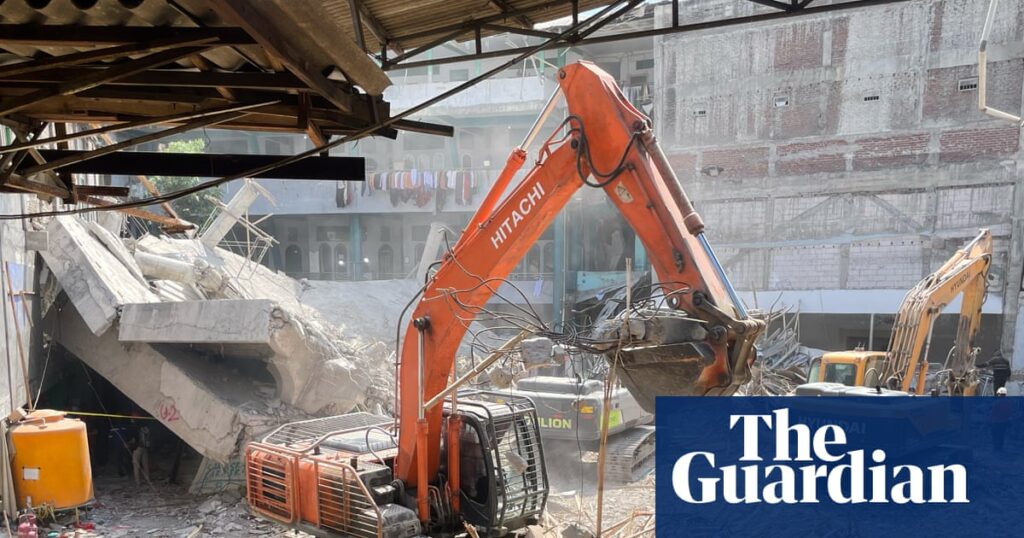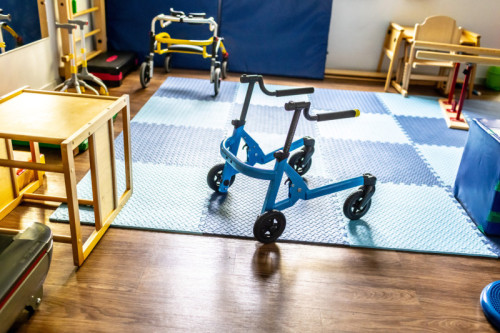
In a tragic turn of events, Indonesian rescue teams continue their search for missing students following the collapse of a prayer hall at an Islamic boarding school. The disaster has claimed the lives of 49 students, with the bodies of dozens recovered over the weekend. The collapse occurred last week at the Al Khoziny school in Sidoarjo, located on the eastern side of Indonesia’s Java island.
Rescue operations have been intense, with teams utilizing heavy machinery such as excavators, jackhammers, and circular saws. In some cases, rescuers have resorted to using their bare hands to sift through the rubble in a desperate attempt to locate the 14 students still unaccounted for. The National Disaster Mitigation Agency reported that 35 bodies were found over the weekend alone.
Construction Violations and Structural Failures
The collapse of the century-old school building has raised significant concerns about construction practices in Indonesia. Police investigations suggest that the building’s structural failure was due to unauthorized construction work. Two additional levels were reportedly being added to the existing two-story structure without the necessary permits.
“The construction couldn’t support the load while the concrete was pouring [to build] the third floor because it didn’t meet standards and the whole 800-square-metres construction collapsed,” explained Mudji Irmawan, a construction expert from the Tenth November Institute of Technology. He further emphasized that students should not have been allowed inside a building undergoing such extensive construction work.
Legal and Regulatory Implications
The incident has sparked widespread anger over illegal construction practices in Indonesia. Sidoarjo district chief, Subandi, confirmed that the school’s management had not applied for the required construction permit. This violation of Indonesia’s 2002 building construction code could lead to severe penalties, including fines and imprisonment.
“Many buildings, including traditional boarding school extensions, in non-urban areas were built without a permit,”
Subandi noted. The code stipulates that any construction without a permit faces fines and imprisonment, with harsher penalties if the violation results in fatalities.
Community and Religious Sensitivities
The school’s caretaker, Abdus Salam Mujib, who is a respected Islamic cleric in East Java, issued a public apology following the incident. In a rare public appearance, he addressed the community, urging patience and faith.
“This is indeed God’s will so we must all be patient, and may God replace it with goodness, with something much better,”
he stated. The sensitivity surrounding criminal investigations involving Muslim clerics in Indonesia, the world’s most populous Muslim-majority nation, adds a complex layer to the unfolding situation.
Ongoing Investigations and Future Precautions
East Java’s police chief, Nanang Avianto, assured the public that a thorough investigation is underway. The police are collaborating with a team of construction experts to determine whether negligence by the school contributed to the tragic loss of life.
As the community grapples with the aftermath of this disaster, the incident underscores the urgent need for stricter enforcement of building regulations and greater accountability in construction practices. The search for the missing students continues, with hopes of closure for affected families.
The implications of this tragedy may lead to reforms in how construction projects are managed and monitored in Indonesia, particularly in rural and non-urban areas where regulatory oversight may be less stringent. The nation watches closely as investigations unfold, hoping for justice and improved safety standards to prevent future tragedies.






